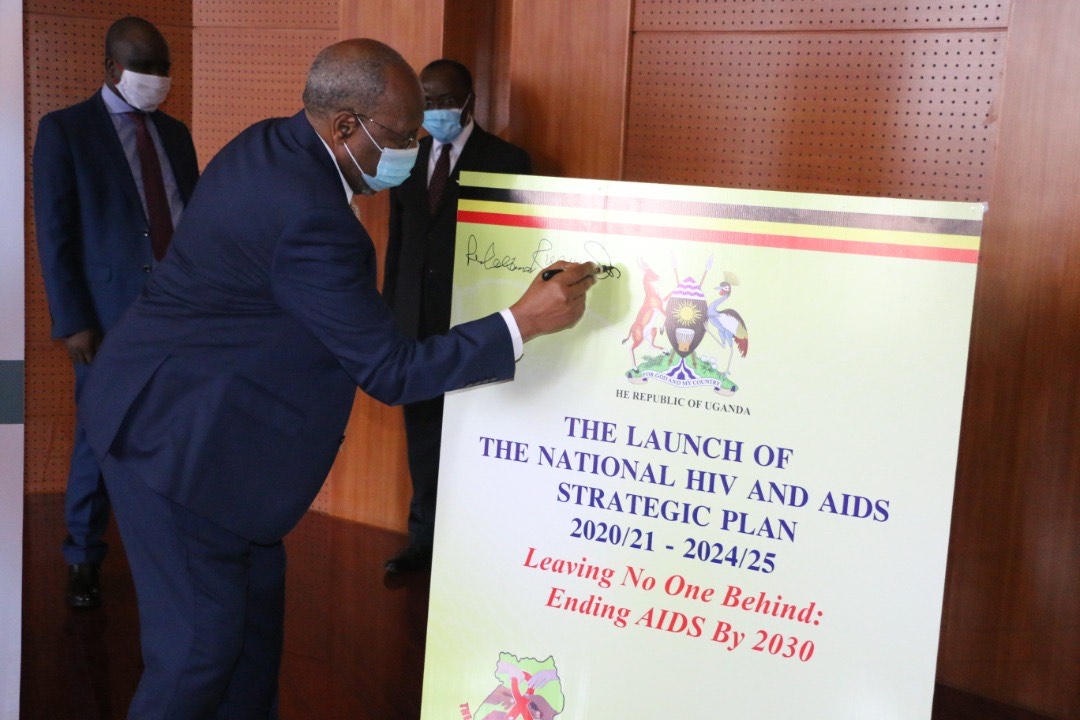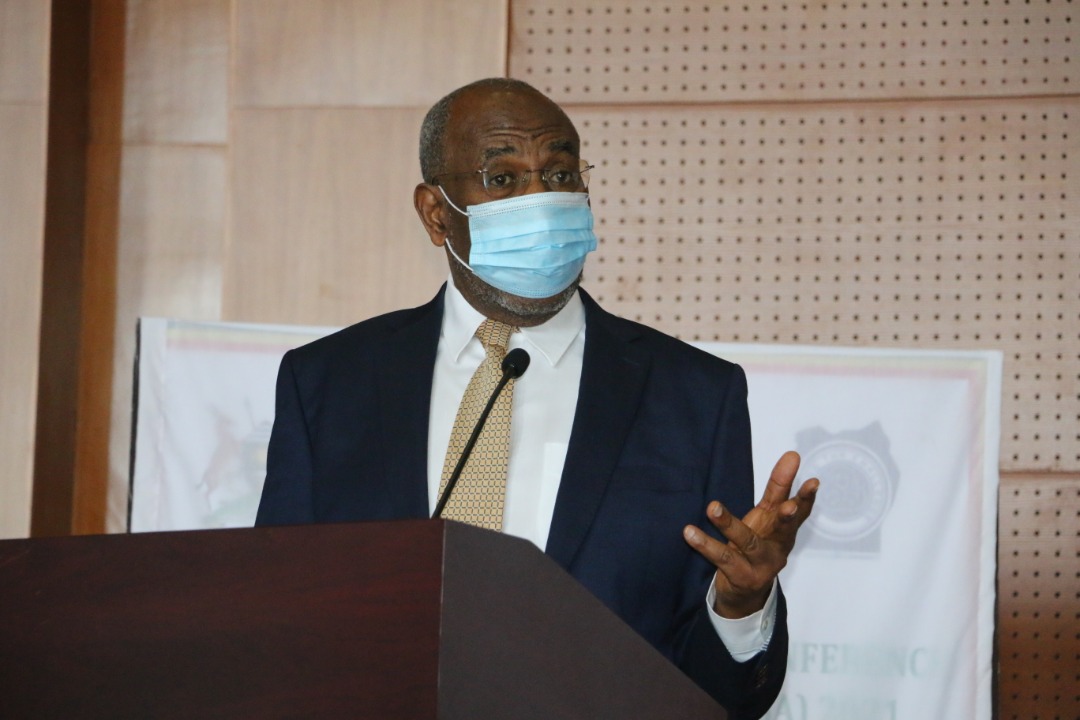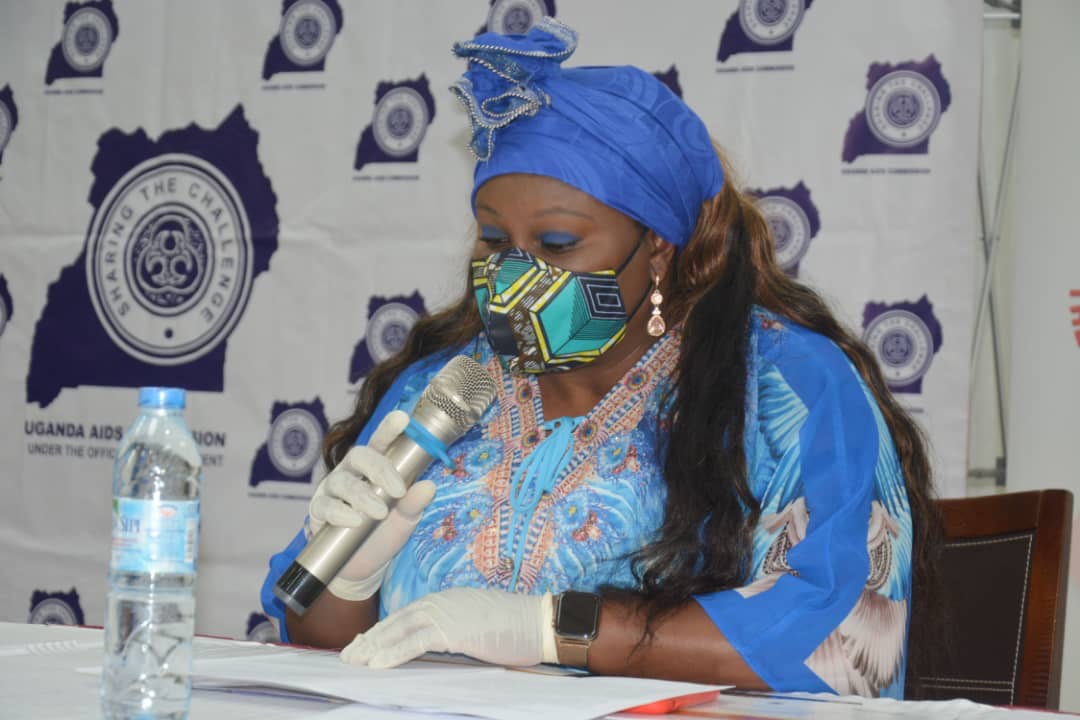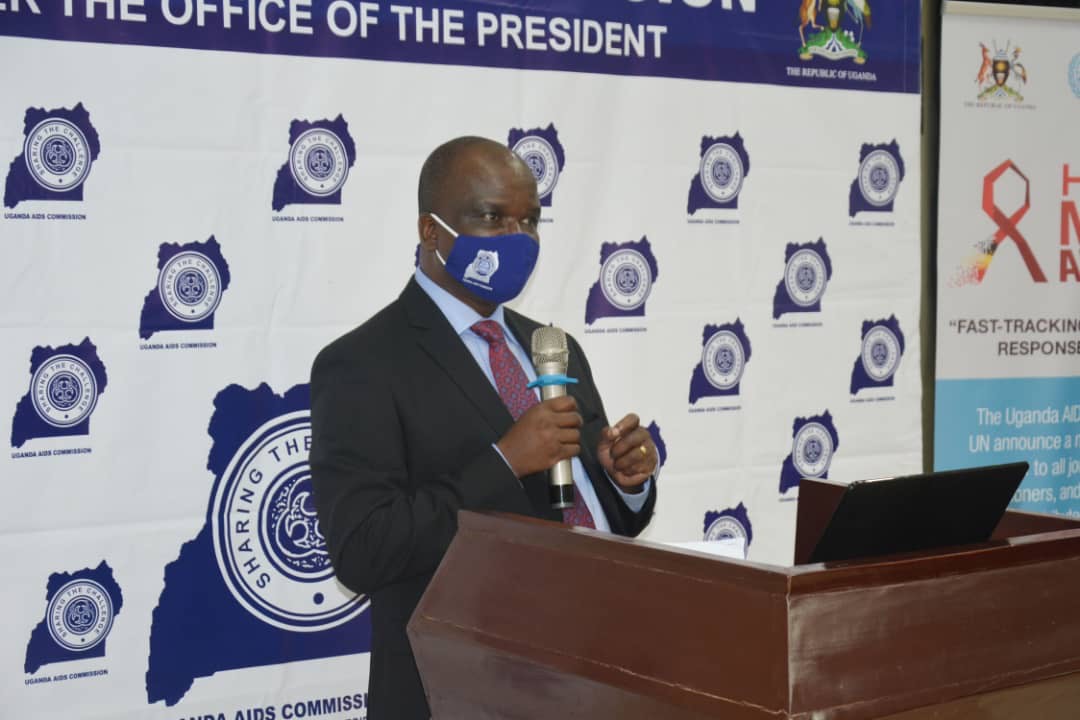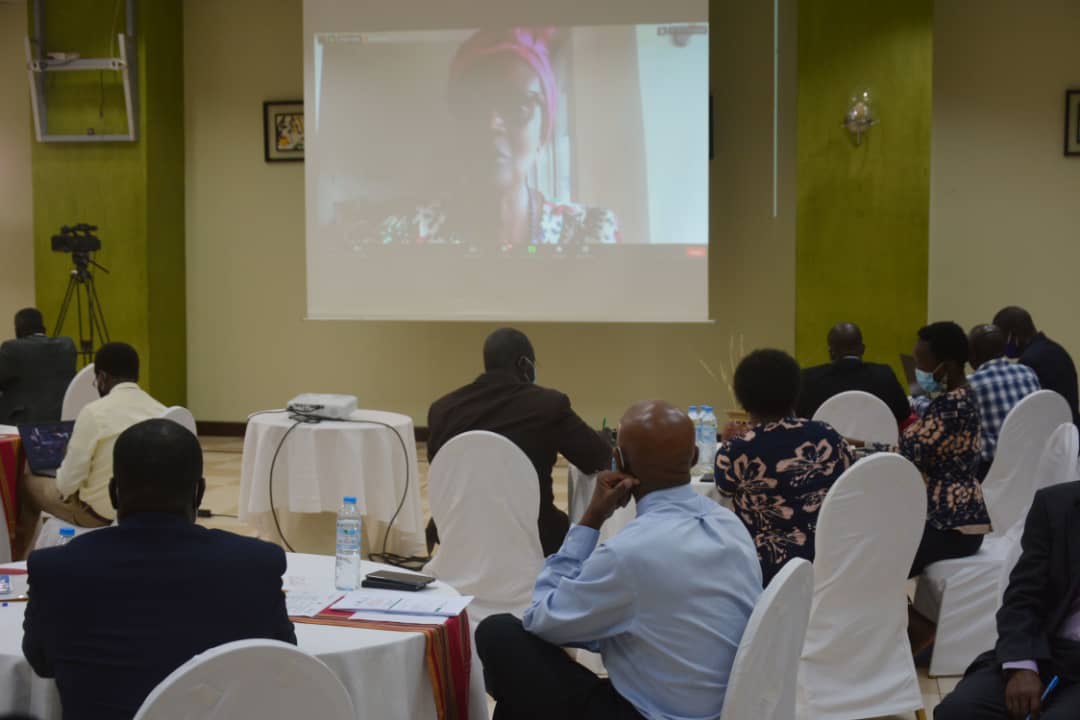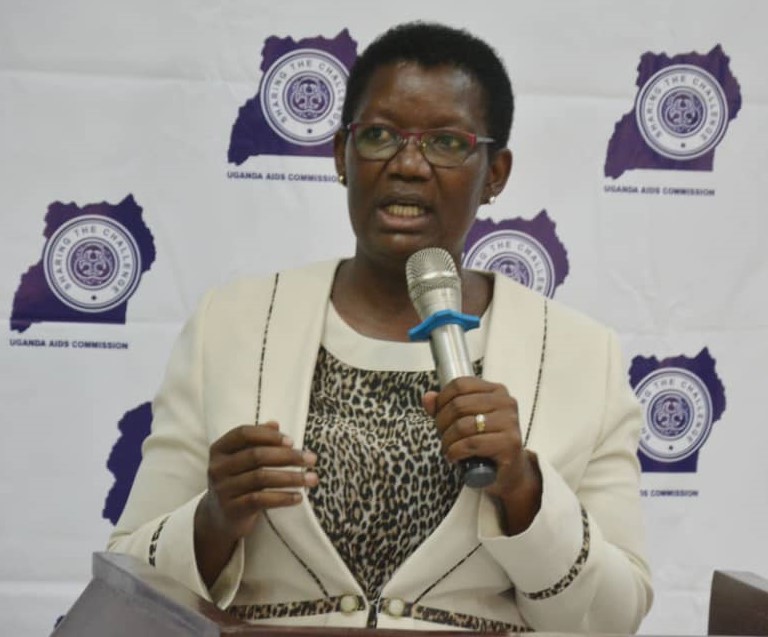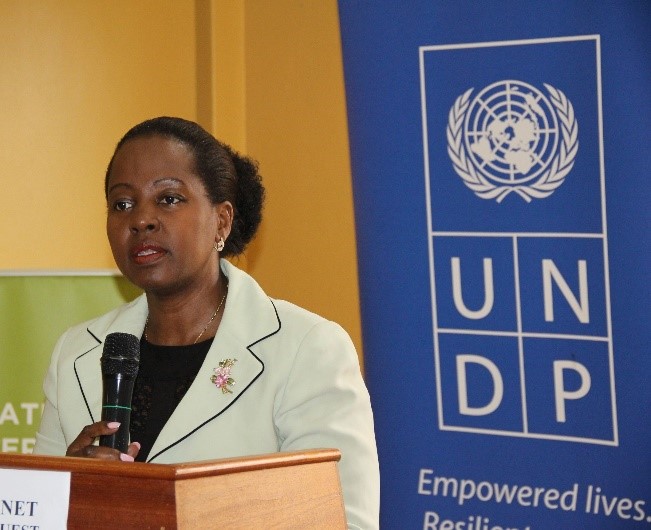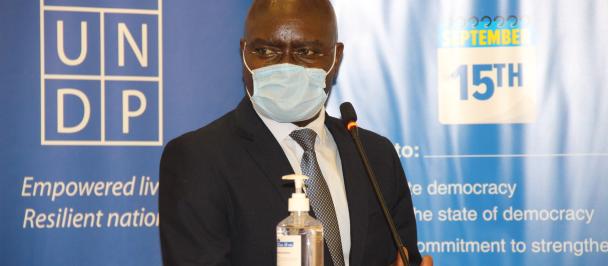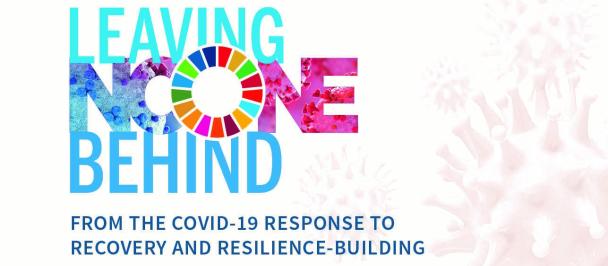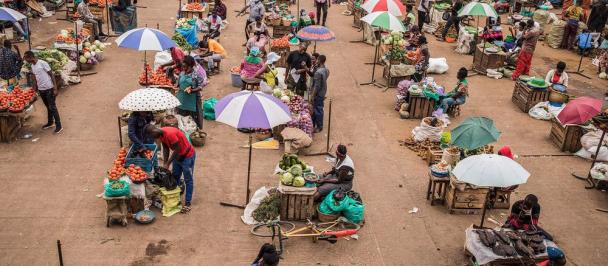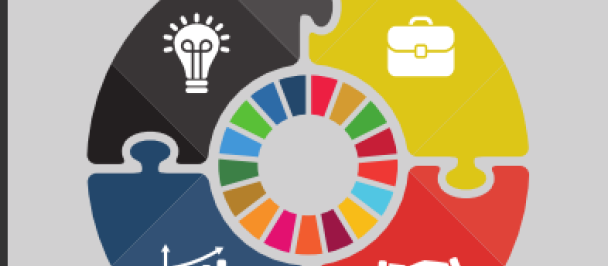Prime Minister of Uganda Rt. Hon. Ruhakana Rugunda launches the National HIV and AIDS Strategic Plan 2021/21-2024/25
The Prime Minister of Uganda Rt. Hon. Dr. Ruhakana Rugunda Speaks during the 13th Annual Joint AIDS Review conference
Sustainable financing and collaboration has been identified as key to the fight against HIV and AIDS. This was disclosed by participants at the 13th Annual Joint AIDS Review (JAR) which took place virtually for the first time in its history, owing to the novel coronavirus disease (COVID-19) pandemic. Under the theme “Ending AIDS: Leaving no one behind”, the review drew in persons and online participants from Government, Development Partners, representatives of people living with HIV/AIDS, and representatives from academia, Civil Society and the private sector.
Organized by the Uganda AIDS Commission (UAC) under the Office of the President, this year’s JAR reviewed the state of national HIV response in line with targets set in the National HIV and AIDS Strategic Plan (NSP) 2015/16-2019/20, and provided opportunities to sharpen response and scale up interventions under the commitment to end the global AIDS epidemic by 2030.
UN Resident Coordinator Ms. Rosa Malango addresses participants
The United Nations Resident Coordinator, Ms. Rosa Malango, chaired the opening ceremony of the event and used the opportunity to emphasize that an ongoing and collective effort is required in the national HIV response. “It is imperative to note that Uganda is among the countries which have successfully reduced the number of HIV infections,” Ms. Malango noted. “However, there is still more work for us to do.”
Opening ceremony remarks were also delivered by UAC Chairman Dr. Eddie Mukooyo, Republic of Ireland Deputy Ambassador Ms. Nicole McHugh, and US Embassy Charge d’Affaires Mr. Christopher Krafft, while UAC Director General Dr. Nelson Musoba delivered a presentation of the JAR Report.
Dr. Musoba reminded participants of the 90-90-90 UNAIDS targets; where 90% of all people living with HIV must know their HIV status, 90% of all people diagnosed with HIV receive sustained antiretroviral therapy, and 90% of all people receiving antiretroviral therapy do experience viral suppression. “We have significantly brought down deaths related to AIDS,” Dr. Musoba noted. “Though as we speak, COVID-19 could – unless we continue to focus on our interventions – reverse some of the gains that have been met.”
UAC Director General Dr. Nelson Musoba
UNAIDS Executive Director Ms. Winnie Byanyima addresses the 13th Annual Joint AIDS Review via teleconference
A keynote address was delivered by UNAIDS Executive Director Ms. Winnie Byanyima who discussed HIV response in Uganda and at the global level, emphasizing the importance of supporting vulnerable populations. “This year marks 38 years since HIV was found in Uganda in 1982,” Ms. Byanyima said. “As a Ugandan, I want to say thank you all for the work you have done since the HIV epidemic broke out in our country. You have maintained a sense of urgency and continued to fight heroically in bringing new solutions to this work. I am proud to be one of you in this battle.”
The Minister for Presidency, Ms. Esther Mbayo
The Minister for Presidency, Ms. Esther Mbayo, officially opened the 13th Annual Joint AIDS Review and launched the Media Awards, commending participants in their fight against HIV and AIDS, and stating that ending HIV and AIDS by 2030 will require a continued collective effort. “We must strengthen our health and social service delivery systems to meet the needs of most at-risk populations,” Ms. Mbayo said. “I pledge, on behalf of Government, to provide the needed resources and any other support to realize these aspirations.”
Following the opening ceremony, five parallel sessions took place covering the following topics:
- · Involving everyone in championing the end of new HIV infections;
- · Attaining the 95-95-95 targets in the new National HIV and AIDS Strategic Plan;
- · Eliminating mother-to-child transmissions;
- · Financing of the National HIV and AIDS Strategic Plan 2020/21-2024/25; and
- · Leadership and coordination.
Ms. Sheila Ngatia, UNDP Deputy Resident Representative
Financing of the National HIV and AIDS Strategic Plan
Delivering the opening remarks for the session on financing, UNDP Deputy Resident Representative Ms. Sheila Ngatia commended efforts that have brought down HIV prevalence from 18% in the 1990s to 5.7% in 2020 in Uganda, while highlighting the need to sustain efforts in the face of challenges such as addressing service delivery gaps, ensuring sustainable financing and maintaining effective partnerships.
“Uganda’s efforts to increase domestic financing for HIV response are exemplary. Although, the largest portion of funding is still contributed externally by Development Partners,” Ms. Ngatia said. “Looking ahead, we need to establish new and innovative financing approaches to bridge this gap.”
Ms. Ngatia noted that disruptions relating to COVID-19 have amplified how integral health is for sustainable development, detailing that UNDP is working in liaison with the World Health Organization (WHO) to strengthen Health Sector partnership in the following areas:
1. Energy for Health: Improving access to energy services for health facilities.
2. Digitalizing Health Services: Improving efficiency and accountability in health services.
3. Health Financing: Supporting the establishment of sustainable health financing systems.
4. Capacity Building: Building national capabilities for disaster risk reduction and resilience.
Contributing their expertise to the session were Global Fund Uganda CCM Chairperson Dr. Maggie Kigozi, PEPFAR Deputy Coordinator Dr. Ifeyinwa Udo, Ministry of Finance, Planning and Economic Development Representative Mr. Joseph Mwesigwa, and Ministry of Health Representative, AIDS Control Program (ACP) Epidemiologist Dr. Wilford Kirungi.
Dr. Kirungi noted that domestic investments need to be made now if Uganda is to achieve epidemic control in the future. “Maintaining the current level of financing to support the current coverage of service is not an option,” Dr. Kirungi said, before adding, “It is not affordable as a country to simply scale up all interventions. We have to make strategic choices.”
Following parallel sessions, participants from all sectors were encouraged to contribute to open discussion. With this 13th Annual Joint AIDS Review (JAR) coinciding with a review of the National HIV and AIDS Strategic Plan (NSP) 2015/16-2019/20 and transitioning into the new NSP 2020/21-2024/25, much of the discussion revolved around scaling up the collaborative national response, increasing domestic financing, ensuring sustainable approaches to financing and service implementation, and ultimately reinforcing the commitment to end the AIDS epidemic by 2030.

 Locations
Locations